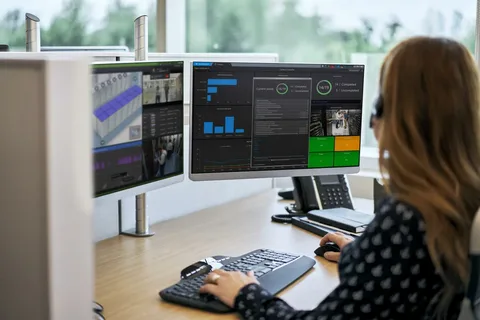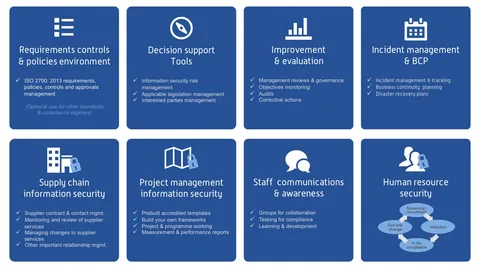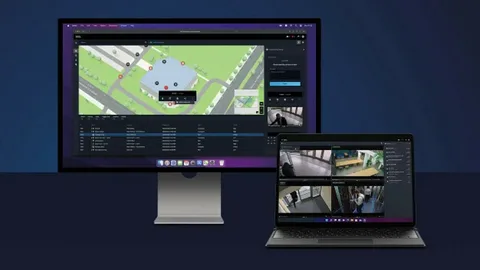Genetec Requesting Security Information: A Guide
Let’s be real. If you’re dealing with Genetec asking for security information, It’s easy to become overwhelmed. No matter if you’re working involved in IT or security management or a business owner trying to keep your business safe, these requests could cause you to ask some tough concerns.
Questions like:
- What is the reason Genetec asking for the information?
- What do they require it to do?
- Do I do all the right things to protect my data?
If you’re feeling uneasy If you’re feeling unsure, you’re not the only one. In this article, we’ll take it in steps so you’ll know how to prepare, the reason it’s happening, and what you can do to react definitely.
What We’ll Cover:
- What exactly is Genetec and why do they seeking security information?
- What is the significance of security information in the present world?
- Methods to handle Genetec’s demands as a professional
- Experiments from the real world that show how this process operates
- FAQs to help you understand any doubts
- finest methods to safeguard your information and simplify future requests
What is Genetec, and Why Are They Requesting Security Information?

Genetec in a Nutshell
Genetec is a world leader of security products. From physical security devices like security cameras to cyber security platforms, Genetec has software available that aids businesses in protecting their operations. When Genetec requests security data generally, it is to do with making sure that your data and systems are safe.
They might be seeking information to fulfill a variety of reasons:
- Audits of your system Audits of your security systems assure you have security measures that are up-to-date and working effectively.
- Compliance check Validating that your operation is in compliance with security standards or regulations.
- Requests for support If you’re requesting a benefit with a problem, they might require certain security information to aid you.
Why They Ask for Security Information
When Genetec seeks security data generally, it’s to benefit your security systems However, it could feel like they’re snooping into your personal data.
The fact is, the reason Genetec has this information is for:
- Learn about weaknesses This is done to warrant that there aren’t any holes within your protection.
- Verify conformity Check to see if you’re following the guidelines of your industry and excellent practices.
- Customize their assistance by understanding the security settings They can provide more efficient solutions.
Why Security Information Matters in Today’s World
Keeping Your Business Safe
If you’re in charge of the firm’s operations, then you recognize the dangers. Data security breaches and unauthorized access attacks on computers are frequent. This is the reason data security is essential.
When Genetec requests this information, it’s looking for:
- Check that your systems run smoothly Any weak spots implies less risk.
- Stop downtime When the security system fails, your company is unable to function.
- Protect sensitive information customer data as well as employee data and business secrets—keeping them safe is always a first priority.
Compliance and Avoiding Legal Trouble
Each sector has its own set of laws concerning security and privacy of data. No matter what it is, GDPR HIPAA or a different abbreviation, compliance is non-negotiable.
If Genetec is involved, it’s likely because:
- They’d like to help you comply with the legal standards.
- Infractions can result in huge fines, or worse, reputational harm.
How to Handle Genetec’s Requests Like a Pro
Now, Genetec has asked for security information and you’re trying to figure out how to handle this without getting into panic mode. Let’s take this process step-by-step.
1. Understand What They’re Asking For
First, take a deep breath. Take the time to read the request thoroughly. Genetec typically provides clarified explanations of what they require and the reasons for it.
Here’s the way to go:
- Answer questions If you don’t think something is obvious, then ask. It is better to ask for clarification prior to.
- Look up the details Are they asking for logs of data? Access credentials? Certifications for compliance? Knowing the precise details will help you find the correct information quickly.
2. Gather the Required Information
If you’ve identified the information they require, then it’s time to put your fingers on the necessary information. This could include:
- Logging system logs to favor information on access points and system health.
- Examining the security policy It is possible that you have to share your security procedures or audits.
- Compiling data from users If they’re seeking information on access to the user or activities.
Be sure to only share pertinent data—never share sensitive information unless it’s absolutely essential.
3. Ensure Data Privacy
Sharing information about security isn’t easy But remember that Genetec is an established partner. It’s still important to assure that you’re adhering to perfect guidelines.
- Secure sensitive information If you’re sharing data via cloud services or email, assure it’s encrypted.
- Access restrictions Access is limited only to those who are in need and assure that your data is safe.
4. Respond in a Timely Manner
Do not put off this request for long. If you put off responding, you’re leaving security concerns unsolved. This could cause more problems in the future. Be proactive and react in the quickest time possible.
Real-World Examples of Genetec Security Information Requests

Example 1: System Health Audit
A small retail business used Genetec’s security platform to monitor their video surveillance as well as access control. Genetec asked for security data for a routine review of health and security in the systems. The purpose was to warrant that the surveillance feeds were safe and that there was no gap in coverage.
When they received the request, the company quickly collected:
- Health logs for the system
- Access records for users
- Network configurations
Within just 48 hours, Genetec was able to identify the security flaw—an old patch for software on one server, which could be a gateway for hackers. The fix was swift, and the company escaped the risk of an attack.
Example 2: Compliance Verification
Healthcare facilities were required to adhere to the strict HIPAA rules concerning the security of patient information. Genetec demanded security data to confirm the compliance of access control protocols in restricted areas that contained sensitive information.
The facility offered:
- Access records for employees
- System logs for use during the key shifts
- The following list contains encrypted sources of information
Genetec’s audit ensured that the facility was compliant and saved them from hefty penalties that could have resulted in the event of a subsequent audit.
FAQs: Genetec Requesting Security Information
1. Why is Genetec Requesting Security Information?
Genetec asks for security information to warrant that your systems are safe as well as compliant and running effectively. This can be used for audits or troubleshooting tests.
2. Is It Safe to Share This Information?
It is true that Genetec can be trusted as a partner. But make sure to follow accurate methods of encryption for sensitive information and restrict access to warranted security of data.
3. What Kind of Information Might They Request?
They might request health logs for the system or user access information and network configurations or documents to warrant compliance. Always verify what details they require prior to sharing.
4. How Long Should It Take to Respond?
Be sure to respond as fast as you can, and at a minimum, by 48 hours. In the event of delays, security issues remain unresolved and could result in more serious issues.
5. What Happens If I Don’t Provide the Requested Information?
Inability to grant the required security information can result in unresolved security problems with compliance, vulnerabilities, or a decrease in system capabilities. It is desirable to respond quickly.
Best Practices to Protect Your Data and Streamline Future Requests

Do you want to speed up the process next time Genetec is knocking? Here are a few accurate methods to adhere to.
1. Keep Your Systems current
Always ensure that you are updating your security systems, software, and patches to warrant that there aren’t any vulnerabilities that could compromise your data.
2. Monitor Security Logs Regularly
Don’t just wait for Genetec to contact you for this information. Review the security logs often to keep track of possible issues before they become serious.
3. Encrypt Sensitive Data
Always secure sensitive data, whether you’re keeping it in your computer or sending it via the cloud. It ensures that, even if your data is accessed and retrieved, it is safe.
4. Document Your Security Protocols
Document your security procedures and policies. This will make it easier to focus on providing the information needed whenever Genetec needs it, without having to fumble around for information.
Final Thoughts on Genetec Requesting Security Information
If you notice Genetec seeking security data It’s normal to be nervous. However, the purpose is to help you keep your systems safe and compliant.
If you know what they require by gathering the correct details and observing desirable methods, you will be able to deal with these requests with ease as well as warrant that your business is safe.




